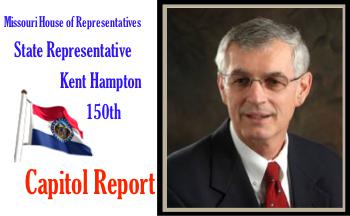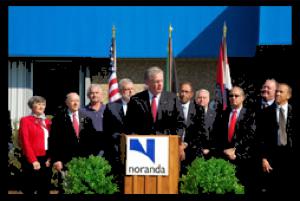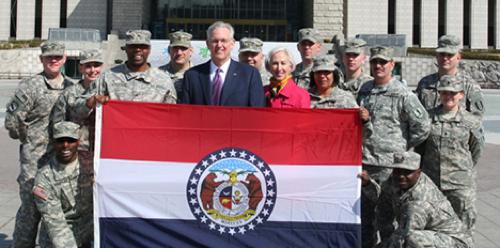


Dee Loflin, SMT Manager/Writer
1st Postmaster General,
Mr. Benjamin Franklin
On this day in 1775, the U.S. postal system is established by the Second Continental Congress, with Benjamin Franklin as its first postmaster general. Franklin (1706-1790) put in place the foundation for many aspects of today's mail system. During early colonial times in the 1600s, few American colonists needed to send mail to each other; it was more likely that their correspondence was with letter writers in Britain. Mail deliveries from across the Atlantic were sporadic and could take many months to arrive. There were no post offices in the colonies, so mail was typically left at inns and taverns. In 1753, Benjamin Franklin, who had been postmaster of Philadelphia, became one of two joint postmasters general for the colonies. He made numerous improvements to the mail system, including setting up new, more efficient colonial routes and cutting delivery time in half between Philadelphia and New York by having the weekly mail wagon travel both day and night via relay teams. Franklin also debuted the first rate chart, which standardized delivery costs based on distance and weight. In 1774, the British fired Franklin from his postmaster job because of his revolutionary activities. However, the following year, he was appointed postmaster general of the United Colonies by the Continental Congress. Franklin held the job until late in 1776, when he was sent to France as a diplomat. He left a vastly improved mail system, with routes from Florida to Maine and regular service between the colonies and Britain. President George Washington appointed Samuel Osgood, a former Massachusetts congressman, as the first postmaster general of the American nation under the new U.S. constitution in 1789. At the time, there were approximately 75 post offices in the country.
Today, the United States has over 40,000 post offices and the postal service delivers 212 billion pieces of mail each year to over 144 million homes and businesses in the United States, Puerto Rico, Guam, the American Virgin Islands and American Samoa. The postal service is the nation's largest civilian employer, with over 700,000 career workers, who handle more than 44 percent of the world's cards and letters. The postal service is a not-for-profit, self-supporting agency that covers its expenses through postage (stamp use in the United States started in 1847) and related products. The postal service gets the mail delivered, rain or shine, using everything from planes to mules. However, it's not cheap: The U.S. Postal Service says that when fuel costs go up by just one penny, its own costs rise by $8 million.
Citizens and Legislators Working Group on Medicaid Eligibility and Reform will hold a hearing to discuss Missouri’s system of Medicaid and will accept public input. The hearing will be held next Wednesday, July 31st at the B.A.I.L.S. center in Kennett from 9 a.m. to 6 p.m. If you wish to testify, please contact our office at (573) 751-3629. Your participation is appreciated.
See ya in Church Sunday!!
As always, it is an honor to serve you in the Missouri House. If you would like to discuss any issue, please call 573-751-3629. You can also email me at kent.hampton@house.mo.gov
Submitted by
Dee Loflin, SMT Manager/Writer
New Madrid, Missouri - Noranda Aluminum Holding Corporation, a leading North American producer of aluminum, will significantly expand the footprint of its smelter in New Madrid, Gov. Jay Nixon announced today. The facility expansion includes a $45 million capital investment and is expected to create 29 new jobs.
This is the second major investment announcement by Noranda in the New Madrid facility in the past three years. In 2010, the company announced plans to invest $38 million to increase the aluminum smelter's annual metal-production capability by approximately 35 million pounds. The latest investment includes funding for an 80,000 square-foot expansion and the purchase of new state-of-the-art equipment.
"Noranda's continued commitment to expanding its Missouri presence is good news for our economy," Gov. Nixon said. "I'm pleased my administration could support Noranda and help make this project possible to create jobs and stimulate economic growth in southeast Missouri."
Originally founded in 1968, the New Madrid smelter has become one of the largest employers in southeast Missouri and currently employ more than 1,000 workers. The facility expansion will allow Noranda to meet greater product demand by increasing the facility's capacity to produce redraw rod, which is used in many electrical infrastructure applications.
"The aluminum smelter here in New Madrid accounts for approximately 13 percent of total U.S. primary aluminum production," says Layle (Kip) Smith, Noranda President and Chief Executive Officer. "Missouri's skilled workforce and competitive business climate have allowed us to compete in the global market and we look forward to our continued growth in aluminum production."
The state of Missouri helped make Noranda's expansion in New Madrid possible through a strategic package of economic incentives, which the company can redeem if it meets the strict job creation and investment criteria.

Submitted by
Dee Loflin, SMT Manager/Writer
Washington, Missouri - Gov. Jay Nixon will take part in a ceremony on Saturday (July 27) in Washington, Mo., to mark the 60th anniversary of the armistice that ended fighting in the Korean War.
More than 50 veterans of the Korean War are expected to attend and be honored at the event. Krog Park in Washington is the site of a memorial honoring those who served in the war, and Gov. Nixon will place a wreath at the memorial after he speaks. The ceremony is being presented by Chapter 324 of the Korean War Veterans Association.
Saturday, July 27, 2013
WHO: Gov. Jay Nixon
More than 50 veterans of the Korean War
WHAT: Ceremony to mark the 60th anniversary of the end
of the Korean War
WHEN: 10 a.m.
WHERE: Krog Park
801 E. Fifth St.
Washington, MO
From the Governor:
Sixty years ago this month, the fighting ended in a war that, today, many Americans know little about. Thousands of young Missourians who fought bravely on the Korean peninsula to halt unprovoked aggression and to defend freedom came home to farms, small towns and big cities across our diverse state. Yet, returning from halfway around the world, few were greeted with fanfare or hailed as heroes. It is unfortunate that it would take decades before the full significance of what they had accomplished was realized.
On July 27 - the 60th anniversary of the armistice that ended "America's Forgotten War" - we should embrace the opportunity to recognize those brave Missourians who waged a valiant fight to protect the freedom of a distant nation, and make the world a safer place. It is also a tremendous chance to educate younger generations about the brave service of these Americans.
When North Korea launched its invasion in June 1950, President Truman vowed that we would not let South Korea fall to an unprovoked attack. More than 6,000 miles from home, serving alongside our allies from South Korea and 15 other nations, American servicemen faced some of the toughest combat conditions imaginable: sub-zero cold and searing heat, attacks that came in waves, and the knowledge that capture could mean summary execution or brutal physical and psychological conditions as a prisoner of war.
Our troops battled for more than three years against Communist forces from North Korea and China, which were backed by the Soviet Union. Those Americans fought courageously in battles whose names live on in our nation's history - Pork Chop Hill, the Chosin Reservoir, Bloody Ridge - and in many other battles without names.
More than 36,000 Americans were killed, and 7,500 remain listed as missing in action; more than 100,000 were wounded. It was a high price, but the legacy of what that generation of veterans accomplished can be found today in the Republic of Korea: a peaceful and stable nation, a democracy where individual freedoms are cherished, and a trusted ally that has brought prosperity to its people - a stark contrast to the suffering that continues under the brutal dictatorship to the north.
I share a bond with many Missourians who had a relative serve in Korea, as my father is a Korean War-era veteran. So it was a special honor to lay a wreath in the Missouri section of the Hall of Heroes at the Korean War Memorial in Seoul this past March. Listed on the memorial were the names of more than 900 Missourians who did not make it back - a stark reminder of the price of freedom.
Today, men and women from Missouri and across the U.S. still serve in the Republic of Korea, some at the world's most fortified border. They are linked to that first generation of Americans who went there more than 60 years ago by their commitment to service, their courage, and the knowledge that freedom is not free.

